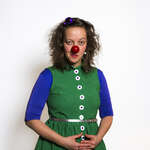#MeetTheArtist: Luciana Arcuri
Luciana Arcuri is a Brazilian-born, Berlin-based performer who has been part of the Emergency Smile team since 2019. With a background in dance, performance, and physical theatre, Luciana also shares her passion through workshops and collaborations — and, most recently, as the organiser of the Clown Festival Berlin. In this interview, she reflects on the power of play, the many layers of her clown Maria Genial, and why joy matters, even — and especially — in times of crisis.
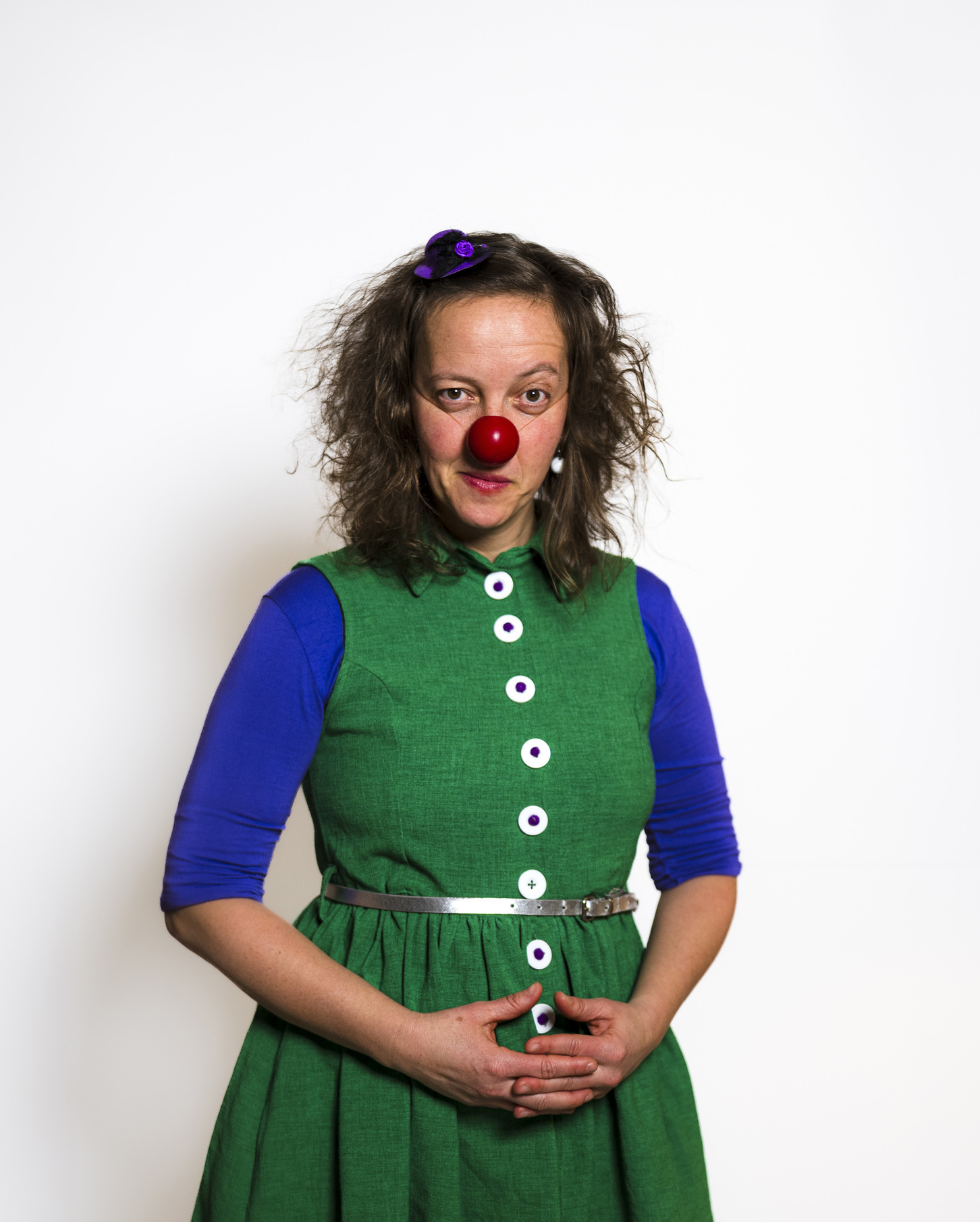 Enlarge photo
Enlarge photoWho is your clown character? Why did you choose this character, and what superpowers does this character have?
I don’t usually refer to it as a ‘character’. Perhaps it’s because the word makes it feel fixed, as though it can’t change — and I’m always changing. I started clowning when I was 17, so I can’t say my clown is the same now as it was back then.
Of course, my clown has a name: Maria Genial. In Portuguese, that would be Maria Eugênia—where ‘eu’ stands for ‘I am’, so in this case, ‘Eu-genia, I’m a genius’. Maria is a common name, and it’s funny that a clown would be called a genius, considering how many mistakes clowns make — and how much they laugh at them. But that’s part of the story of my clown.
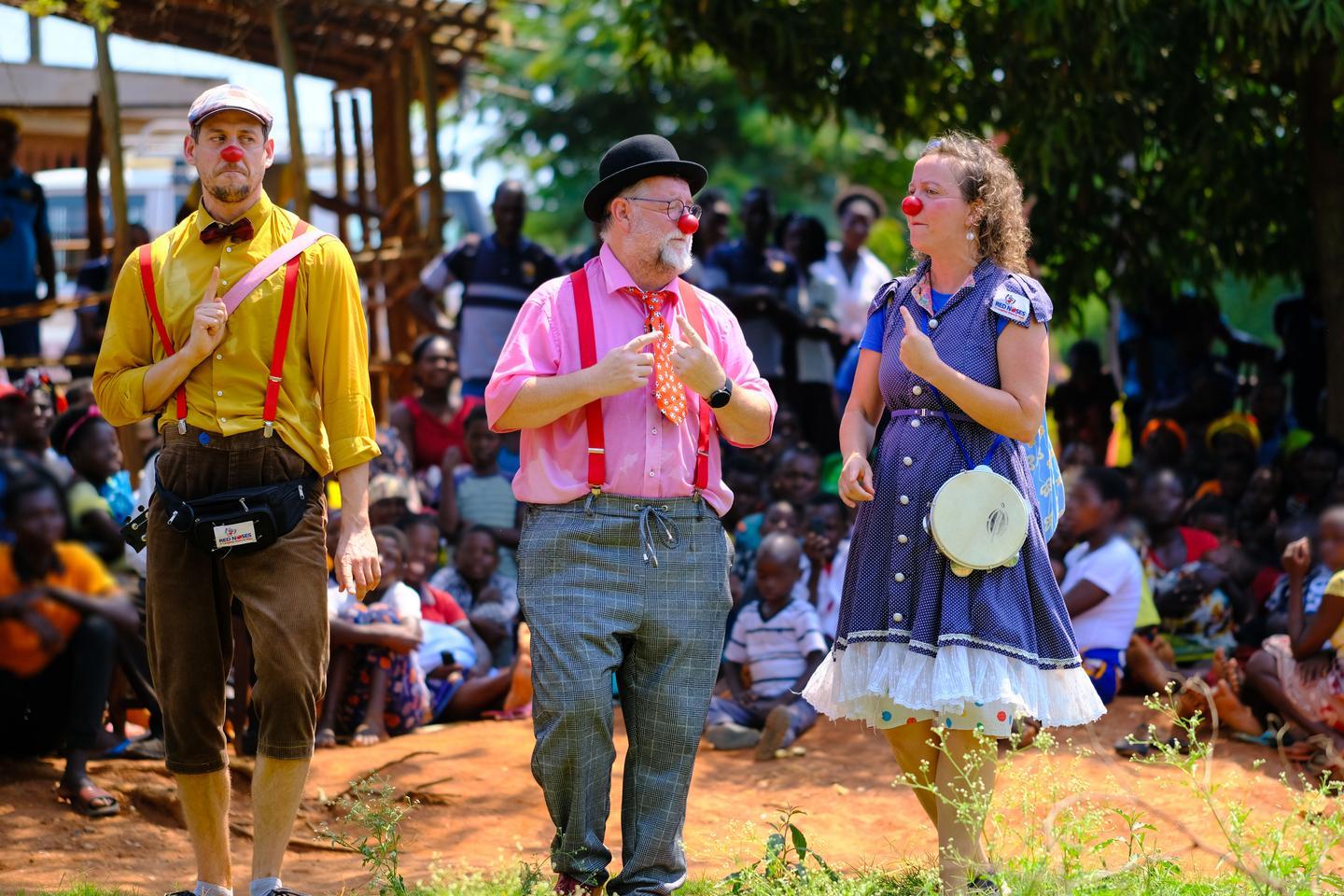 Enlarge photo
Enlarge photoHow do you prepare for your clowning?
It really depends on what I’m doing. If I’m going on stage, I usually need around an hour to warm up—physically, vocally, mentally. I need to move, articulate, speak, stretch, and if I’m playing an instrument, I need to warm up with that too.
In Emergency Smile missions, we don’t always have that much time beforehand, so I’ve developed some quick rituals. For example, I might find a sound—something like ‘spatbulahuhuuu’—to help shift my energy. Make-up and costume are also part of the preparation. I’ll ask myself: how are my shoes today? How is my outfit? The colours I choose are often a mirror of something I want to express.
What kind of impact do you hope to have on the world?
I think the real impact is in the memories that remain after the clown has left. The people we work with often go through incredibly hard times—they may be fleeing war or natural disasters. Their lives are not easy or joyful by nature.
But if, during one day, I can offer them a moment of fun or lightness, it can change something. That moment becomes something they can hold onto—they might think, ‘Well, at least that nice thing happened today.’ And maybe that means the day wasn’t completely bad.
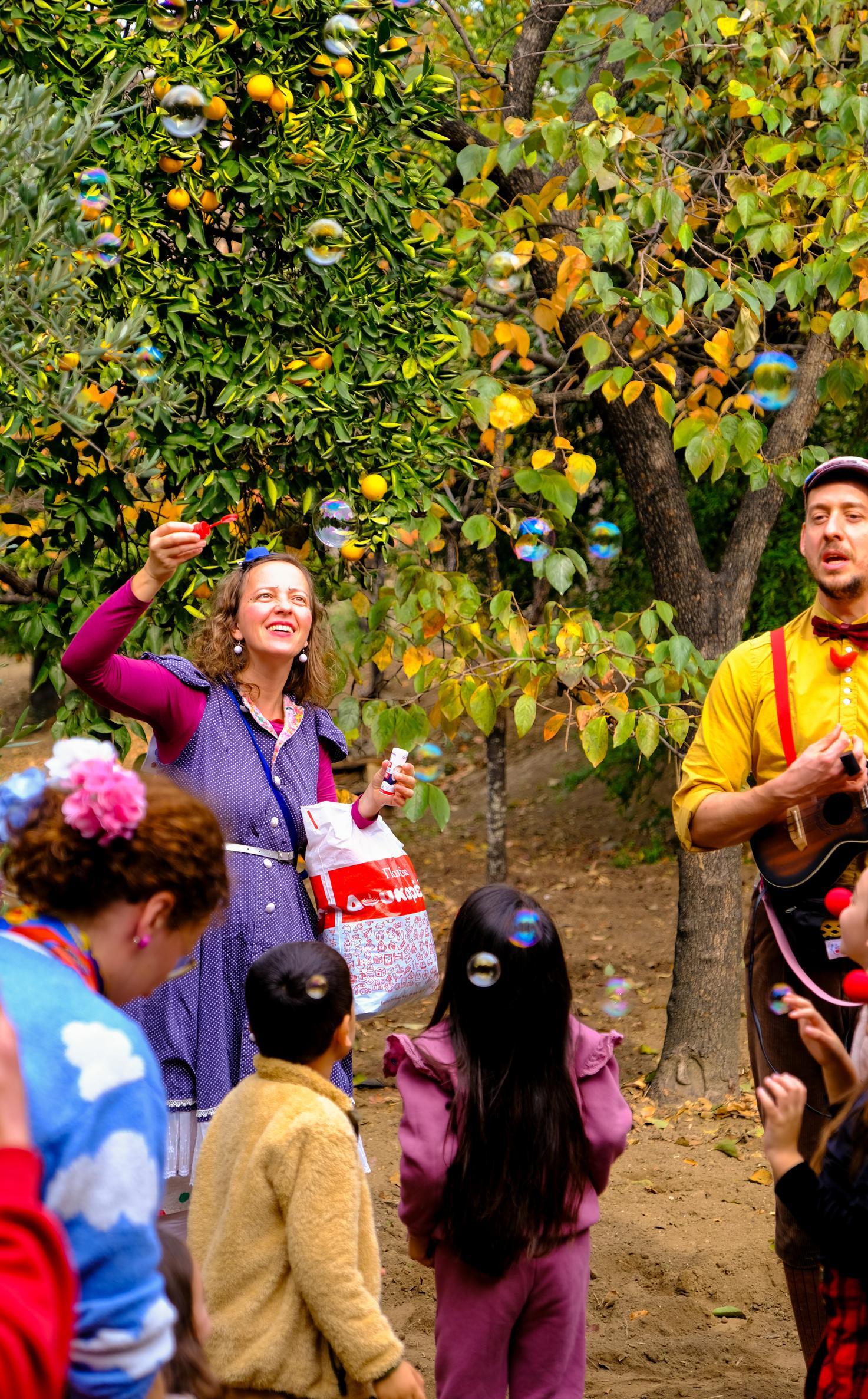 Enlarge photo
Enlarge photoWhat message do you wish to share with the people you meet through your clowning?
I remember a moment in Lesvos. We were performing for a large group of children when a doctor walked by. Later, he told us something that really stayed with me: what he saw in that moment was normality.
In the camps, people rarely get the chance to see something cultural or artistic. Music, art—these things aren’t easy to access there. So, when we bring that, we bring a kind of normality with us.
How do you stay motivated during challenging situations?
I try to come back to myself and remember how privileged I am. Being part of an organisation like this is a gift. That perspective helps me recharge and give more.
When I look around and see how many people live through truly tough experiences, it helps me appreciate my own life. That appreciation gives me strength—and energy—to give my best to the people I work with.
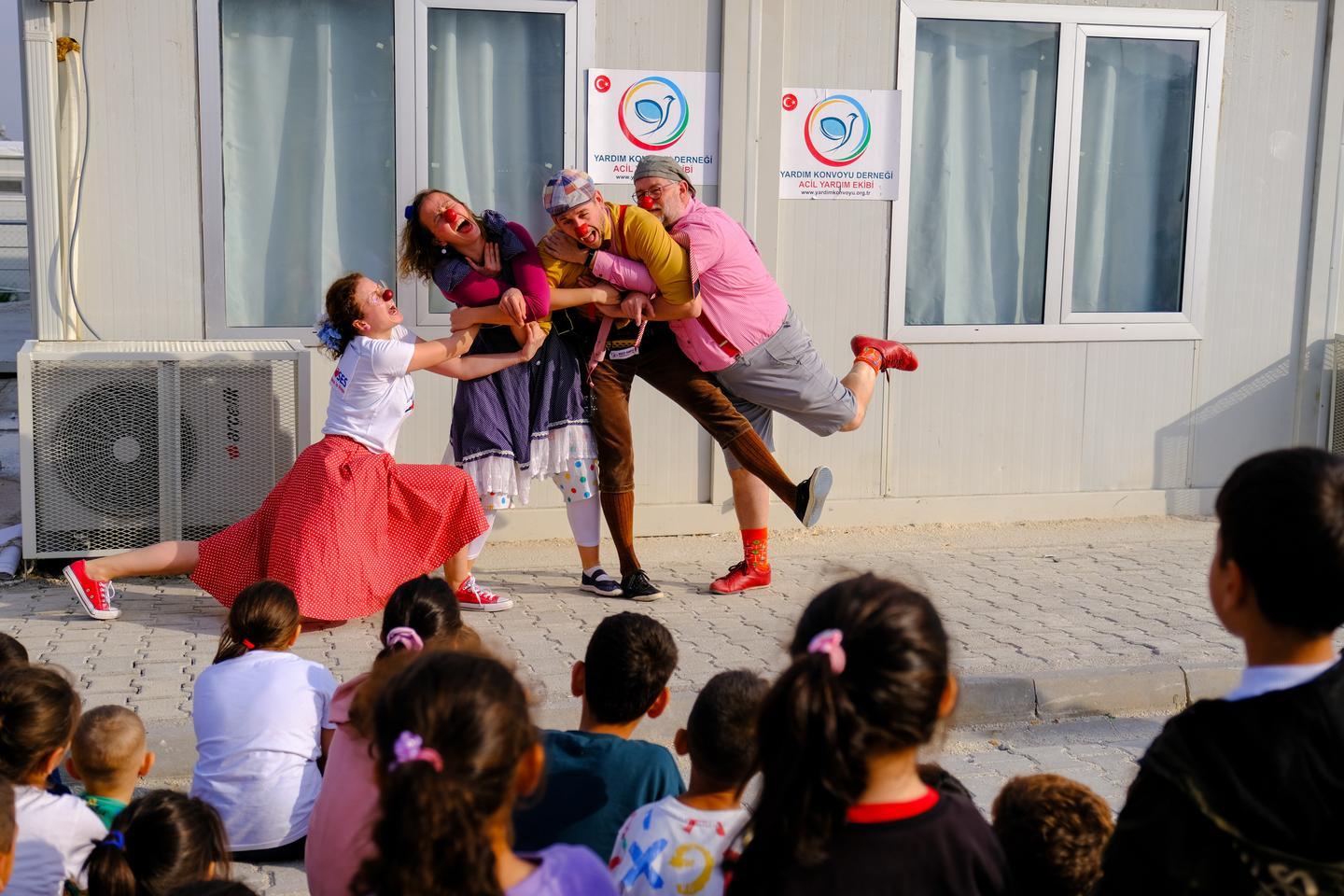 Enlarge photo
Enlarge photoDoes your clown character show up in your everyday life?
I try to bring some of the clown elements into everyday moments—to listen more, to look at things from someone else’s perspective, to find joy in the small things. I try to bring lightness into my day-to-day life.
Why do you think clowning in a crisis setting makes sense?
If we don’t bring some light, some colour into life—then where does hope come from? And hope is such a big word. Through humour, we can communicate differently. It helps to break cultural barriers, challenge stigma, and soften certain beliefs. It opens up new ways to connect.
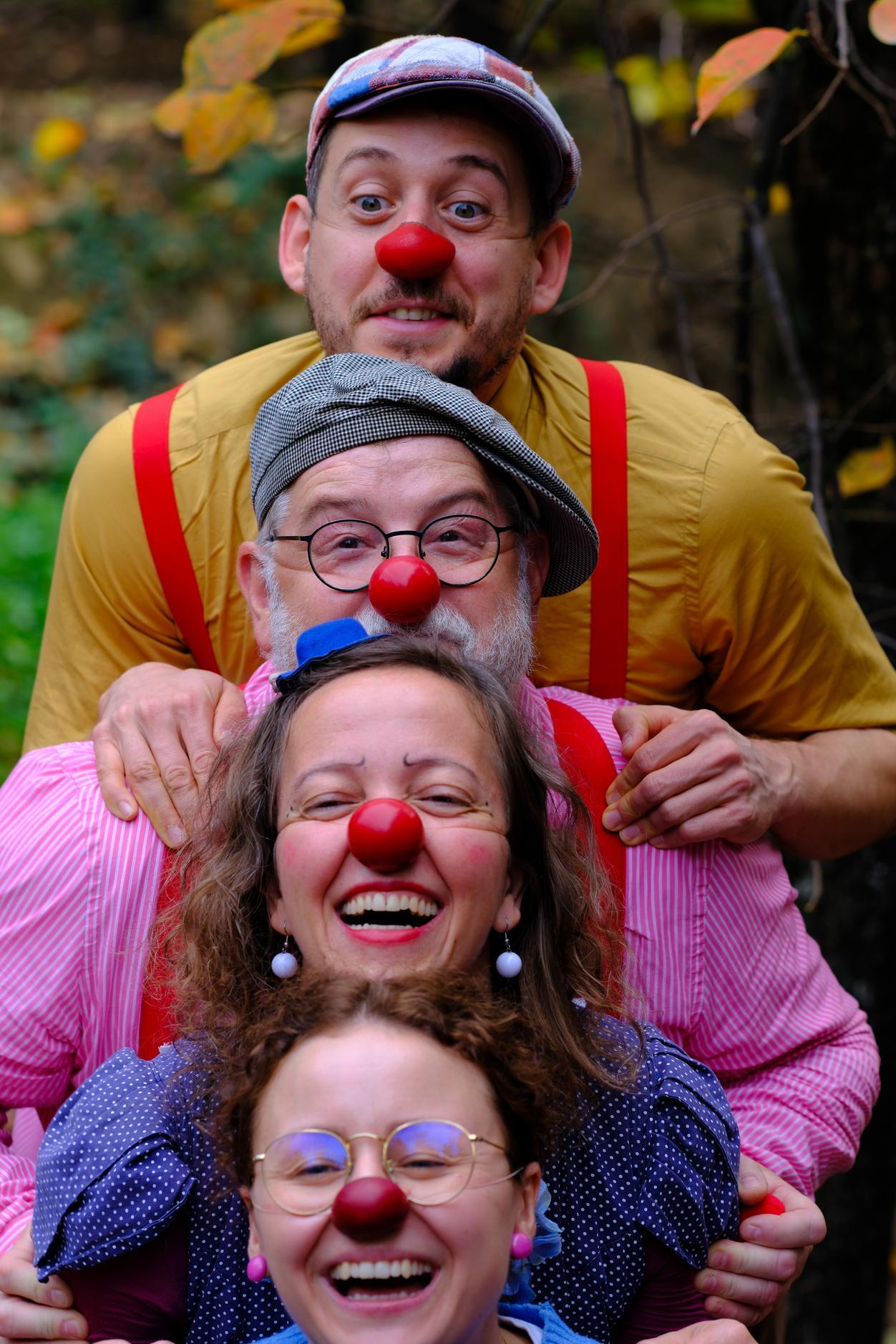 Enlarge photo
Enlarge photoCan you recall a moment when your work had a long-term impact or was especially meaningful?
There are many, but one memory stands out from Lesvos. We saw a line of people waiting for psychological support. One man was waiting there, and a doctor pointed at us and said, ‘Those are the clowns.’
We weren’t in costume at the time, but we had our noses in our pockets. So, we put them on and began playing the kazoo. The man didn’t even know what a clown was—but he started laughing. Really laughing. So much that the doctor looked at me and began to cry. She said, ‘He’s been here for eight months, and I’ve never seen him laugh.’
Sometimes, it’s the smallest things—just putting on a red nose—that can make the biggest difference.
What do you enjoy about being part of Emergency Smile?
I’m from Brazil, and I’ve worked many times in favelas. Before joining Emergency Smile, I thought I had seen it all. But then I realised—it’s very different.
When you’re forced to leave your country, when your family dies along the way, when you arrive somewhere not speaking the language and not knowing anyone… it’s a completely different level of hardship. I saw that life was even more complex and intense than I had imagined.
And that realisation made me even more motivated. Even more passionate about this work.

